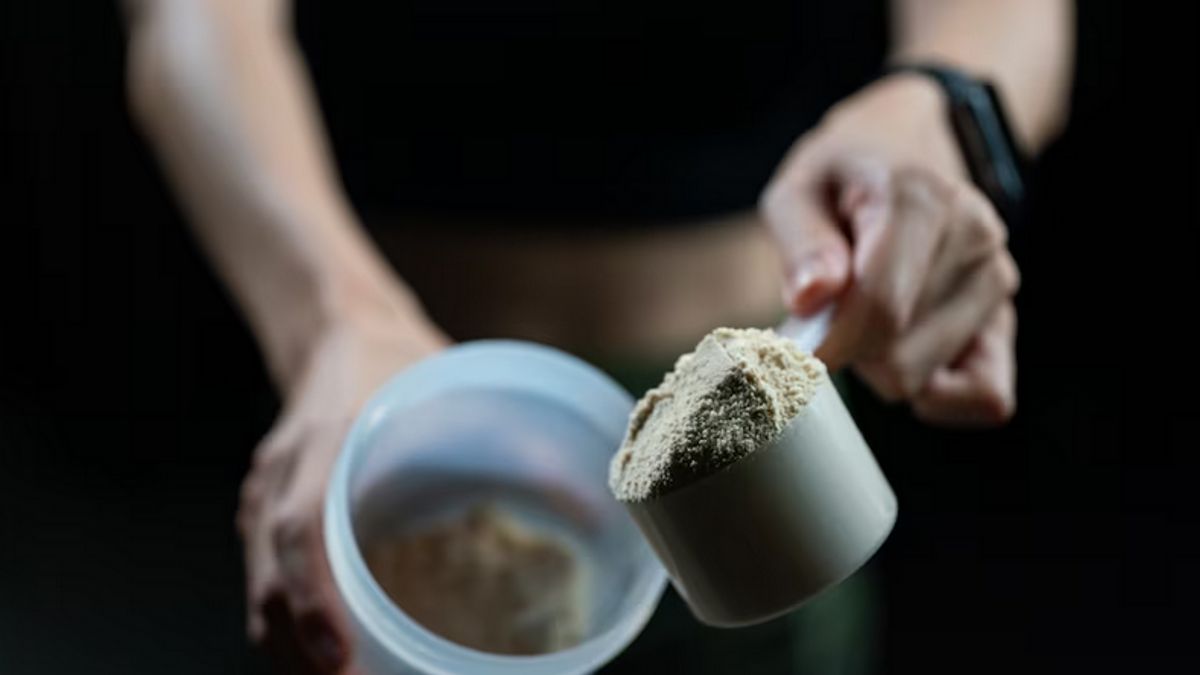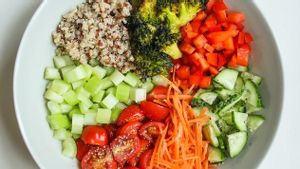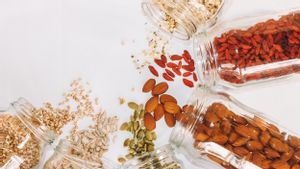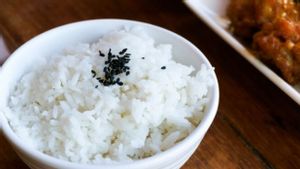YOGYAKARTA – Protein powder is considered an alternative drink or addition to food to improve health. Protein is indeed a macronutrient that the body needs. Mainly related to building and maintaining muscles and forming bone strength. But Kathy McManus, a registered dietitian and director of the Department of Nutrition at Brigham and Women's Hospital, recommends caution when using protein powder. In some cases you do need protein powder, but you have to really monitor it.
The reason is, protein powder, which is generally made from soybeans, peas, rice, potatoes, or flax, and eggs or milk and whey, may contain other ingredients such as added sugar, artificial flavors, thickeners, vitamins and minerals. The amount of protein powder in each spoon ranges from 10 to 30 grams of protein. Meanwhile, supplements for building muscle contain more protein. For protein powder that reduces weight, the protein is relatively less, reported by Harvard Health, Tuesday, October 31.

After knowing the ingredients of protein powder, you also need to know its impact as a precaution. The risk that needs to be considered when consuming protein powder, explained McManus, is that it can cause digestive disorders.
“People with milk allergies or difficulty digesting lactose may experience digestive discomfort if they use milk-based protein powder,” explains McManus.
Additionally, protein powders may be high in added sugar and calories. So instead of losing weight, you can actually gain weight and cause unhealthy blood sugar spikes.
اقرأ أيضا:
So McManus recommends paying attention to daily protein intake recommendations. In women, a protein intake of 46 grams per day is required. Meanwhile, men need 56 grams of protein. With this amount, experts recommend consuming one egg at breakfast (6 grams), 6 ounces (18 grams) of plain Greek yogurt at lunch, a handful of nuts for snacks (4-7 grams), and 2 ounces of cooked chicken for dinner (14 grams).
It doesn't mean that protein powder is not allowed or recommended for consumption. However, consumption of this alternative intake must be under medical supervision. If you want to get healthier protein intake, you can get it from whole foods. Such as nuts, seeds, low-fat dairy products, legumes, fish, poultry, eggs and lean meat.
The English, Chinese, Japanese, Arabic, and French versions are automatically generated by the AI. So there may still be inaccuracies in translating, please always see Indonesian as our main language. (system supported by DigitalSiber.id)


















